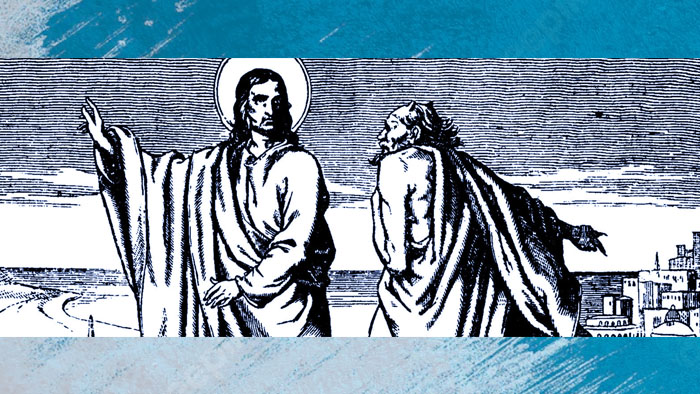Jesus’ desert sojourn began right after receiving His baptism mission cross with the words:
“You are my beloved Son; with you I am well pleased.” Then it’s out in the desert for 40 days and nights. But was He really tempted?
We don’t like to think of Jesus as being tempted. It’s almost sinful even to think it. When Nikos Kazantzakis’ book, The Last Temptation of Christ, came out in 1955, the Catholic Church added it to the “Index of Forbidden Books,” where it sat along with Les Misérables and works by Descartes, and Copernicus.But what they didn’t get from either the book or the movie was that Kazantzakis was trying to say that Jesus knew temptation but did not succumb. The evangelist Luke gets it.
Matthew, Mark, and Luke all tell the story of the temptation. His disciples weren’t around yet and scholars think that it must have come from something Jesus shared with them about His own experience.Luke’s 1st & 3rd temptations begin with the challenge: “If you are the Son of God . . .” Is Jesus asking himself this? Remember at His baptism, He had just heard God proclaim, “You are my beloved Son; with you I am well pleased.” In Luke’s genealogy Jesus is the son of Joseph, but he calls Adam a son of God. Jesus struggled with this: “Am I really God’s son, and what does this mean for me?” Matthew and Mark have angles ministering to Jesus. But Luke says the devil “departed from him for a time.” For Luke, this is not the end of His temptations. In the garden (Luke 22:28) Jesus tells His disciples, “You have stood by me in my time of temptations.”
For Luke, Jesus’ temptations in the desert arethe struggle to live as a faithful son of God. The changing of stones to bread is about self-preservation, not just hunger. Would He be self-assured and comfortable or risk His security and rely on a community of faith? He knew that being self-centered would undermine His mission, and He took up the challenge. Later on, He sent His disciples out without normal provisionsso that they would have to rely on the power of the Gospel alone.
The devil offers a bargain—all the kingdoms of earth. The rich and powerful of our world know all about that. Might trumps all. With power Jesus could get it done right! But Jesus took the big leap—He wasn’t going seek His own power but put Himself in the hands of God. Whatever happens must be God’s will.
Jesus of Nazareth was a human being in every sense of the word. In Luke’s gospel the whole desert scene is a preview of the confusing situations He would be living through and the hard choices He would have to make as the son of God. And it doesn’t end there. We can see many of Jesus’ interactions with His disciples as sharing His own temptations to encourage them to live through their difficulties as pleasing sons and daughtersof God.
All of us who live with passion and are deeply committed to Jesus will be tempted in the same way. Initially they may seem like good ideas, or even unselfish ways to advance God’s Kingdom. The devil is a master of disguise offering the fakiest, though undetectable, news around. This Lent keep a lookout for Luke’s reminders that temptation was not a one-time event for Jesus, nor is it for us. As we enter our 40 days and nights let us seek and learn from Jesus’ human decisions about how to be a faithful Son of God. He provides the map on His own skin.
Jon P Kirby SVD

